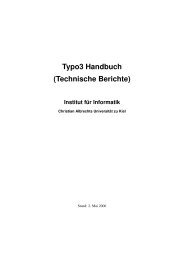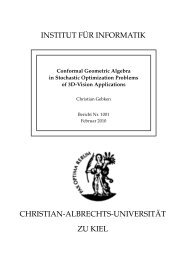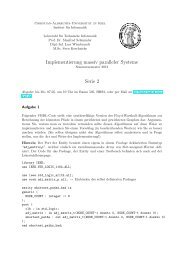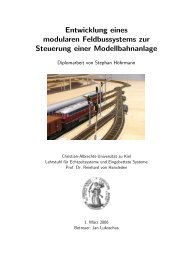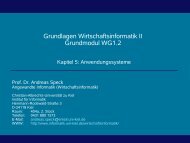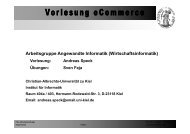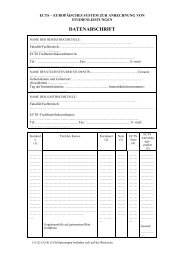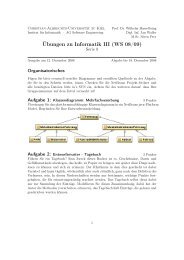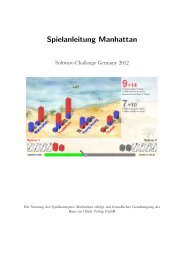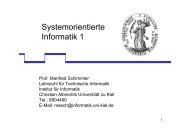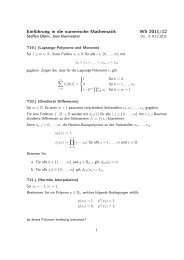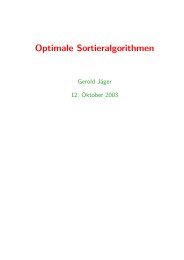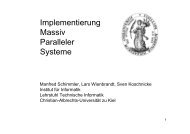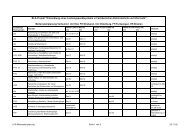Curry: An Integrated Functional Logic Language
Curry: An Integrated Functional Logic Language
Curry: An Integrated Functional Logic Language
Create successful ePaper yourself
Turn your PDF publications into a flip-book with our unique Google optimized e-Paper software.
.<br />
if bk then ek else undefined<br />
where decls<br />
Transform where into let:<br />
Each unconditional rule of the form<br />
l = r where decls<br />
is transformed into<br />
l = let decls in r .<br />
Each conditional rule of the form<br />
l | c = r [ where decls ]<br />
is transformed into<br />
l = [ let decls in ] (c|r)<br />
where the meaning of the guarded expression (c|r) is explained in Figure 3. Thus, we assume<br />
in the subsequent transformations that all program rules are of the form “l = r” (where r might<br />
be a let-expression).<br />
Note that this transformation is not really necessary but provides for a unified treatment of<br />
the elimination of local pattern and function declarations in let and where.<br />
Eliminate local patterns and functions:<br />
All local pattern and function declarations in a rule “l = r” are eliminated by iterating the<br />
elimination of outermost local declarations as follows. For this purpose, we denote by r =<br />
C[let decls in e]p an outermost let declaration in r, i.e., there is no prefix position p ′ < p<br />
in r with r|p ′ = let . . .<br />
We apply the following transformations as long as possible to eliminate all local pattern and<br />
function declarations in a rule of the form “l = C[let decls in e]p”:<br />
Eliminate patterns:<br />
Select a local pattern declaration which contains only argument variables from the main<br />
function’s left-hand side in the expression, i.e., the rule has the form<br />
l = C[let decls1<br />
p = e ′<br />
in e]p<br />
decls2<br />
with free(e ′ ) ⊆ free(l) (it is a programming error if no pattern declaration has this<br />
property, i.e., cyclic pattern definitions or pattern definitions depending on locally free<br />
variables are not allowed). Then transform this rule into the rules<br />
l = C[f ′ x1 . . . xk e ′ ]p<br />
f ′ x1 . . . xk z = f ′′ x1 . . . xk (f1 z) . . . (fm z)<br />
75



